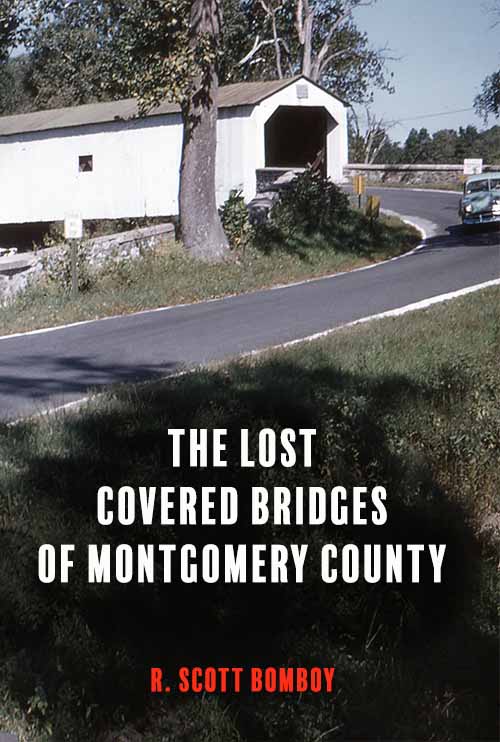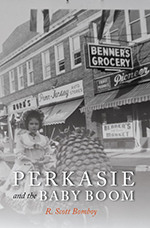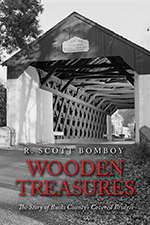For the first time since 1977, Perkasie Borough has a contested mayoral race next Tuesday, as three candidates vie to replace the retiring mayor, John Hollenbach.
Hollenbach is the longest-tenured Mayor in Perkasie Borough history, serving more than 12 years. But he is not the longest-tenured chief executive. Before 1961, Perkasie’s executive head was the “Chief Burgess.” Carey S. Groff served four terms as the burgess from 1918 to 1933, and his successor, Harleigh Apple, was in office from 1934 to 1947.
LeRoy Kulp had the singular honor of holding both titles when the state changed the name of Chief Burgess to Mayor in 1961.
Borough founder Joseph A. Hendricks was also the first Chief Burgess of Perkasie in 1879. Until 1891, Perkasie elected a burgess each February who served for one year. The term became three years in 1891, and in 1917, the election was moved to November and the term became four years.
What was the difference between a burgess and a mayor? According to the official Pennsylvania Mayor’s Manual, the Chief Burgess had much more power in the early days of that office.
At the time when Hendricks became Perkasie’s first Chief Burgess in 1879, Hendricks supervised borough council and he could conduct criminal hearings if someone violated a borough ordinance. In 1893, the burgess lost the power to run borough council but was given veto power over any borough council vote or resolution. Eventually, the burgess also lost the ability to hold hearings, but the Chief Burgess had a role with the borough’s police department. Those powers didn’t change in 1961 when the burgess became the mayor.
The Pennsylvania Mayor’s Manual defines the job of the modern mayor as such:
“Borough Councils now exercise most appointive and legislative powers formerly exercised by burgesses. Nevertheless, the mayor remains as the ceremonial head of borough government even though not technically a member of the Borough Council. Even though modern mayors under Pennsylvania’s present Borough Code possess less legislative, administrative and judicial powers than before, they exercise important powers and duties under it and are also in a unique position to exercise leadership in the community because of the prestige of the office and its elected status. In fact, in many boroughs the mayor is the only borough-wide elected person who participates in the work of the borough on a regular basis.”
The mayor’s most important administrative roles are in the supervision of the police department and the casting a veto of many (but not all) Borough Council votes. The mayor can also delegate the supervision of the police department to borough management. In reality, the mayor, the police department and borough management work together on public safety issues.
The mayor can also issue emergency declarations and make proclamations, and perform the following special services:
- Borough mayors are authorized to solemnize marriages.
- The mayor is authorized to administer oaths and affirmations in matters pertaining to borough affairs.
- Mayors can report to council on citizen reactions to municipal activities and developing problems brought to their attention.
 In Perkasie’s history, the Chief Burgess or Mayor has rarely issued a veto of a borough council vote. In February 1910, Chief Burgess Bean vetoed the council’s purchase of a steam road roller, but the veto was overridden. Among the most-controversial vetoes in Perkasie’s history was in 1930, when council overrode Chief Burgess Groff’s veto of the Blue Laws, which closed movie theaters on Sunday in Perkasie. The laws were later replaced in 1934.
In Perkasie’s history, the Chief Burgess or Mayor has rarely issued a veto of a borough council vote. In February 1910, Chief Burgess Bean vetoed the council’s purchase of a steam road roller, but the veto was overridden. Among the most-controversial vetoes in Perkasie’s history was in 1930, when council overrode Chief Burgess Groff’s veto of the Blue Laws, which closed movie theaters on Sunday in Perkasie. The laws were later replaced in 1934.
And in 1996, Mayor Godshall vetoed a motion allowing the drive-in McDonald’s restaurant project in Perkasie Square Shopping Center. Perkasie Borough Council also overrode that veto.
A Chronology of Perkasie Chief Executives
Chief Burgess
1879 – Joseph A. Hendricks
Spring Elections Era
1880 – David H. Bean
1881 – Jacob Smith
1882 – Samuel Althouse
1885 – John Harr
1886 – Josiah Solliday
1889 – Reuben Stout
1890 – Abraham A. Hendricks
1891 – D. Morris Beyer. Chief Burgess now becomes a three-year term.
1894 – Henry O. Moyer
1897 – Henry Scheetz
1900 – Isaiah Barndt
1902 – Frank Knoll (after Barndt resigned)
1903 – William Groover (D) defeats Henry Scheetz by one vote.
1906 – Peter Keller
1909 – Abraham Bean
1910 – Abraham Freed (replaces Bean who died in office, March 1910)
1914 – Samuel Bishop
Modern Elections Era
1917 – Carey Groff defeats Democratic and Socialist candidates. The election switches to November and Chief Burgess becomes four-year term.
1933 – Harleigh M. Apple ends Groff’s four terms as Chief Burgess as the Democrats sweep most Perkasie elections.
1947 – Roy Benner appointed after Chief Burgess Apple dies at the age of 64.
1949 – Walter Herstine wins election, unseating Roy Benner, a Democrat, with a big turnout of Republicans in the Second Ward.
1957 – LeRoy M. Kulp succeeds Herstine, who declined to run for another term.
Mayor
1961 – Kulp wins re-election as the state changes the title of “Chief Burgess” to “Mayor.”
1965 – Mayoral candidate Claude Renner leads a Democratic sweep of Perkasie elections after Kulp declines to run for another term.
1973 – Retired postmaster Lester Trauger, a Democrat, defeats Earl Hunsberger in the mayoral race.
1977 – Republican C. Robert Bergey defeats Franklin Horn after Trauger declines to seek re-election.
1981 – Winfred O. Kulp, former councilman, runs unopposed as the Republican candidate.
1985 – Winfred O. Kulp wins re-election with no opposition from the Democrats.
1987 – Mayor Kulp retires from public service and Borough Council names pharmacist Jay Godshall as his replacement.
1989 – Godshall is elected as the Republican candidate with no opposition and serves for nearly 10 years. Godshall runs unopposed in 1993 and 1997.
1999- After Mayor Godshall retires, Borough Council appoints retired judge Robert Hunsicker to serve the rest of Godshall’s term in office. Hunsicker wins unopposed elections in 2001 and 2005.
2009 – Council appoints retired banking executive John Hollenbach to replace Hunsicker, who resigns for health reasons. Hollenbach wins an unopposed election in November 2009. He also wins unopposed elections in 2013 and 2017 for mayor.








